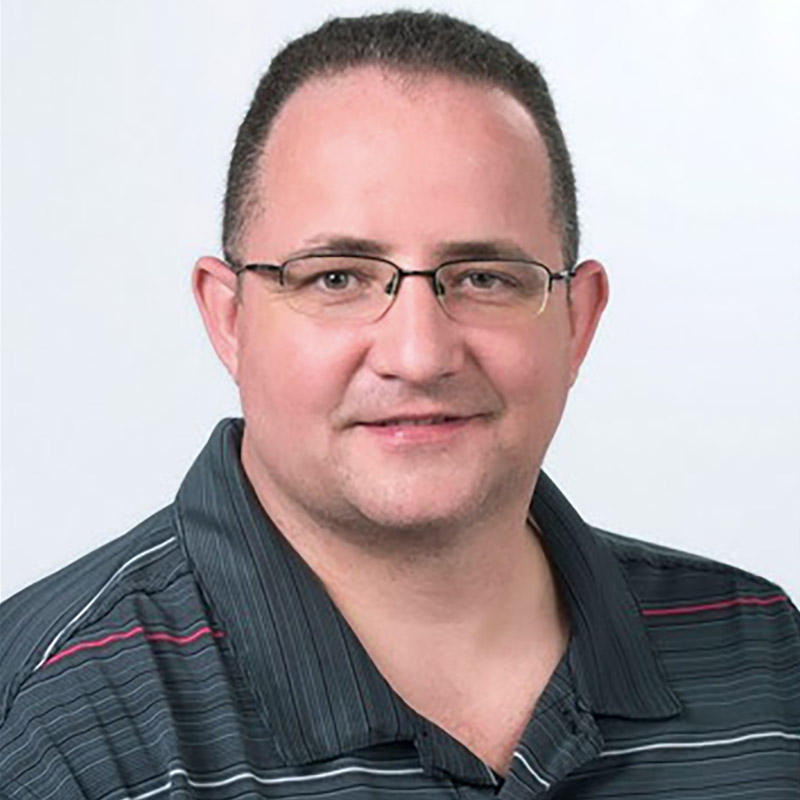If you’ve ever wondered, ‘What is a partial hospitalization program (PHP)?’ or pondered the impact of such programs, you’re in the right place.”
In this article, we’ll journey through the key aspects of PHP, from understanding its purpose and structure to its effectiveness and who administers it. By the end, you’ll have a comprehensive understanding of how PHP programs can be a vital bridge to mental wellness and recovery.
Let’s explore PHPs, shining a light on what they are, how they work, and how they can lead you on a path to better mental health.
Understanding Partial Hospitalization Programs (PHP)
A Partial Hospitalization Program (PHP) for mental health is an intensive and structured treatment option designed to provide comprehensive care to individuals dealing with significant mental health challenges. It serves as a transitional level of care between inpatient and outpatient settings, offering a highly supportive and therapeutic environment. This can best be described as “day treatment” where the patient attends programming options throughout the day but is still able to return to the comfort of their own home for the evenings.
Get more information about RisingPhoenixAZ and our PHP Programs here.
Bridging the Gap Between Inpatient and Outpatient Care
PHPs act as a vital bridge between inpatient hospitalization and outpatient treatment. While inpatients receive 24/7 care within a hospital, outpatient care typically involves less frequent and less intensive therapy sessions. PHPs offer a middle ground, providing daily or near-daily treatment and support that involves 20-25 hours of programming each week.
Who is a Suitable Candidate for a PHP
PHP programs are typically well-suited for individuals who may not require 24/7 inpatient care but still need intensive treatment. Doctors often recommend them for individuals struggling with conditions such as severe depression, anxiety disorders, bipolar disorder, substance abuse issues, trauma disorders, and personality disorders. PHPs are also an option for those at risk of relapse after inpatient care.
Benefits: Comprehensive Treatment, Structured Environment, and Therapeutic Support
One of the key strengths of PHPs is their focus on comprehensive treatment. They typically include a range of therapeutic interventions, including group therapy, individual counseling, medication management, case management, experiential therapy, and health and wellness education or activities.
The structured environment provides stability and routine, which can be particularly helpful for individuals dealing with mental health or substance abuse challenges.
Therapeutic support is important in PHPs. A team of professionals works together to give personalized care and help people on their recovery journey.
Learn about 15 Benefits of PHPs

How Long Are Most PHPs and How Are They Structured?
The duration of a Partial Hospitalization Program (PHP) can vary, but most programs typically last for several weeks. The exact length depends on individual needs, treatment progress, and the severity of the mental health condition. While some PHPs may be as short as two weeks, others can extend to eight weeks or more. The goal is to provide intensive care while ensuring that individuals are well-prepared for a transition to less intensive levels of treatment.
Factors Influencing Program Duration
Several factors influence the duration of a PHP program. These factors include the type and severity of the mental health condition, the individual’s response to treatment, and the recommendations of the treatment team. We tailor the program length to each participant’s unique circumstances and needs. Additionally, insurance coverage and the availability of resources can also impact the length of stay in a PHP.
Daily or Weekly Schedule within a PHP Program
PHP programs, such as those offered at Rising Phoenix Wellness Services, provide participants with a structured daily or weekly schedule designed to establish a consistent and therapeutic routine. In these programs, clients can expect a comprehensive and structured alternative to inpatient treatment, with group sessions available 5 days a week in an outpatient environment.
At Rising Phoenix Wellness, clients have access to a minimum of 20 hours of integrated care, which includes a combination of group therapy sessions, individual counseling, psychoeducation classes, psychiatric assessments and medication management, and experiential therapies. These elements are integral to the program and ensure a well-rounded approach to mental health treatment and recovery.
Group therapy sessions are a cornerstone of PHPs, offering individuals the opportunity to share their experiences, learn valuable coping skills, and receive crucial support from their peers. This communal aspect fosters a sense of belonging and helps individuals develop essential tools for managing their mental health effectively.
The exact daily or weekly schedule can vary between PHP programs, including Rising Phoenix Wellness, but the core principle remains consistent—providing a balanced and structured approach to promote healing and recovery. This intensive and comprehensive care occurs in a community environment, aligning with best practice guidelines and enabling a seamless transition to a lower level of services as clients progress in their mental health journey.
Can I Still Work My Job While in a PHP?
Maintaining employment while in a PHP can be challenging due to the intensive nature of the program. The daily or near-daily treatment sessions often require a significant time commitment.
However, some individuals may be able to work part-time or remotely while in a PHP, depending on their specific circumstances and the flexibility of their job. It’s essential to discuss employment concerns with the treatment team and your employer to determine the possibility of continuing to work during the program. The primary focus during a PHP is typically on mental health treatment and recovery.
Insurance Coverage for PHP Programs
Many people ask if Insurance typically covers the cost of PHP Program.
Insurance coverage for Partial Hospitalization Programs (PHP) varies depending on the individual’s insurance plan and provider. Many insurance companies do offer coverage for PHPs as they recognize the importance of intensive mental health treatment.
However, the extent of coverage, including the portion of costs covered and any deductibles or copayments, can vary widely. It is essential to contact your insurance company or review your policy with Rising Phoenix Wellness Services’ expert team to understand the specific coverage details.
Verifying Insurance Coverage Before Enrollment
Verifying insurance coverage before enrolling in a PHP program is crucial to avoid unexpected financial burdens. Knowing what your insurance plan covers, what out-of-pocket expenses you may incur, and any pre-authorization requirements can help you plan for the cost of treatment effectively.
Failure to verify coverage in advance could lead to unexpected expenses that may impact your ability to participate fully in the program.
Navigating Insurance-Related Paperwork and Processes
Navigating insurance-related paperwork and processes can be complex. Here are some tips to help you navigate this aspect of accessing PHP treatment:
- Contact Your Insurance Provider: Reach out to your insurance company’s customer service or member services department to discuss your coverage and inquire about PHP benefits.
- Verify In-Network Providers: Check if the PHP program you’re considering has partnerships with your insurance company as an in-network provider. Insurance companies often cover in-network services at a higher rate.
- Obtain Pre-Authorization: If required, work with your treatment team to obtain pre-authorization from your insurance company before starting the PHP program. This step ensures that the treatment is medically necessary and eligible for coverage.
- Review Costs and Responsibilities: Understand your financial responsibilities, including copayments, deductibles, and any coinsurance. Budget accordingly to cover these expenses.
- Keep Records: Maintain records of all communications with your insurance company, including phone calls, emails, and written correspondence, to ensure you have a clear record of discussions about coverage.
- Appeal if Necessary: If your insurance company denies coverage initially, you may have the option to appeal the decision. Consult with your treatment team for guidance on the appeals process.
Verifying insurance coverage and understanding the financial aspects of PHP programs can help you make informed decisions about your mental health care and ensure you can access the treatment you need.
Cost of PHP Programs
The cost of Partial Hospitalization Programs (PHP) can vary widely based on several factors, including your location, the specific program you choose, and the services included at Rising Phoenix Wellness Services.
Here’s a breakdown of potential costs associated with PHP programs, along with factors that can influence the overall cost:
- Base Program Fee: The base fee for a PHP program typically covers core services, such as group therapy, individual counseling, and mental health education. This fee can range from $2500-4000 per week.
- Medication Management: If medication management is part of the program, there may be an additional fee for psychiatric assessments and ongoing medication monitoring, with costs varying from $250-350 per session.
- Additional Services: Some PHP programs provide specialized services like art therapy, yoga, or nutrition counseling, which may come with their own costs, varying widely.
- Location: The cost of PHP programs can vary based on geographic location. However, at Rising Phoenix Wellness Services, we strive to offer competitive and reasonable pricing for our Arizona-licensed outpatient programs.
- Duration: Generally, the longer you stay in a PHP program, the higher the overall cost. Programs that last eight weeks typically cost more than two-week programs.
- Insurance Coverage: Your insurance coverage plays a significant role in determining out-of-pocket expenses. Check with your insurance provider to understand their coverage when attending a PHP program.
- Financial Assistance: Rising Phoenix Wellness offers financial assistance options and you should inquire about available financial assistance.
- Transportation and Lodging: If the PHP program isn’t near your home, additional expenses for transportation and lodging may apply, increasing the overall cost.
Always keep in mind that you should consider the cost of a PHP program alongside the comprehensive mental health care and support it provides. Discuss pricing and payment options with program administration to make an informed decision about your mental health treatment.

Follow-up Care and Continuity
After completing a Partial Hospitalization Program (PHP), it is crucial to understand the significance of follow-up care and continuity in one’s mental health journey. Here’s a closer look at these important aspects, with a reference to Rising Phoenix Wellness Services:
Importance of Follow-Up Care:
The journey to mental wellness doesn’t end with the completion of a PHP program at Rising Phoenix Wellness or any other mental health facility. Following up on care is vital to ensure that we sustain and build upon the progress made during the PHP program.
It serves as a bridge that transitions individuals from the intensive treatment environment back to their daily lives. Follow-up care helps prevent relapse, reinforces coping strategies, and allows for ongoing assessment and support.
Aftercare Services:
Participants who complete a PHP program at Rising Phoenix Wellness may receive recommendations for various aftercare services tailored to their specific needs. These services could include an intensive outpatient program (IOP) with Rising Phoenix Wellness Services, continued medication management, support groups, or access to specialized workshops and resources. The goal of aftercare is to provide ongoing guidance and assistance as individuals reintegrate into their communities, helping them maintain the skills and strategies learned during their PHP experience.
Maintaining Progress and Preventing Relapse:
Continuity of care is essential for maintaining the progress achieved during a PHP program and preventing relapse. Rising Phoenix Wellness Services recognizes that the post-PHP phase is a critical period in one’s recovery journey. It’s a time when individuals may face challenges and triggers in their daily lives. To address this, aftercare services at Rising Phoenix Wellness Services and similar programs offer a safety net of support and resources to help individuals navigate these challenges successfully.
By emphasizing the importance of follow-up care, describing recommended aftercare services, and highlighting the role of maintaining progress and preventing relapse, individuals who have completed a PHP program can better understand the ongoing commitment to their mental health and well-being.
Effectiveness of PHP Programs
Partial Hospitalization Programs (PHP) have proven to be highly effective in providing comprehensive mental health treatment. Here’s a closer look at why PHP programs, such as those at Rising Phoenix Wellness Services, are a valuable component of mental health care:
Research and Evidence-Based Support:
PHP programs, like the ones offered at Rising Phoenix Wellness Services, have a strong foundation of evidence supporting their effectiveness in treating a wide range of mental health conditions. Research indicates that individuals who participate in PHPs often experience substantial improvements in symptom management, quality of life, and overall well-being.
Study Data About PHPs Value
For instance, a study by A. H. Schene and B. P. Gersons, published in the National Library of Medicine, highlighted the valuable role of PHPs. Their research, conducted over 15 years, emphasized PHP as a reasonable alternative to both inpatient and outpatient treatment, taking into account factors such as symptomatology, cost, and family burden (PMID: 3811995). Additionally, their findings indicated that PHP programs, like those offered at Rising Phoenix Wellness, particularly enhance social role functioning, maintaining patient-environment contact without the disruption caused by hospitalization.
Another notable study conducted by Anthony Bateman, M.A., F.R.C.Psych., and Peter Fonagy, Ph.D., F.B.A., published in the American Journal of Psychiatry, focused on the effectiveness of psychoanalytically oriented partial hospitalization for patients with borderline personality disorder.
This randomized controlled trial demonstrated that patients who participated in a PHP program experienced significant improvements, including a decrease in suicidal and self-mutilatory acts, reduced inpatient days, and better social and interpersonal function (DOI: 10.1176/ajp.156.10.1563). These findings underscored the superiority of psychoanalytically oriented partial hospitalization, suggesting it as a viable alternative to inpatient treatment.
These findings underscore the value of evidence-based PHP programs, like those at Rising Phoenix Wellness, in delivering effective mental health treatment. By adhering to best practices and drawing on research-supported methods, Rising Phoenix Wellness ensures that clients receive the most effective and beneficial therapies available.
Real-Life Success Stories: (please insert Rising Phoenix Client Testimonials)
Here are a few real-life success stories from individuals who have experienced the transformative power of PHP treatment at Rising Phoenix Wellness Services:
Sarah, 32: “Before joining the PHP program at Rising Phoenix Wellness Services, I was struggling with severe anxiety and depression. The structured and supportive environment, along with the therapy sessions, made a huge difference. Today, I’m managing my symptoms effectively, and I’m grateful for the skills I learned.”
David, 45: “I’ve battled substance use for years, and PHP at Rising Phoenix Wellness Services was a turning point for me. The program gave me the tools to overcome my addiction and address the underlying mental health issues. I’m now living a sober and fulfilling life.”

Complementing Other Treatments:
PHP programs fit seamlessly into the continuum of care for mental health. They offer a higher level of support than outpatient therapy while providing more flexibility than inpatient care. PHPs often serve as a bridge between these two levels of care, ensuring individuals receive intensive treatment when needed and then gradually transition to less intensive services as they progress in their recovery journey. This flexibility and continuum of care approach are crucial in addressing various mental health needs effectively.
Who Manages a PHP: Administration & Healthcare Professionals
A dedicated team of healthcare professionals administers Partial Hospitalization Programs (PHP) and collaborates to ensure comprehensive and effective mental health care. Here’s an overview of the key individuals who provide services to patients:

Dr. Aaron Wilson
Medical Director
Dr. Wilson earned his medical degree from Tulane University in 2007. Following graduation from medical school, he completed his Psychiatric residency at Tulane University Department of Psychiatry and Behavioral Sciences. Read More >

Erin Stanfield, LCSW
CEO, Clinical Director
Erin has extensive experience in treating mental health conditions, substance use disorders, process disorders, and co-occurring disorders. She has been in practice for the past 15 years. Erin received her bachelor’s degree in recreational therapy from Indiana… Read More >

Seth Jenkins, LPC, LISAC
Clinical Supervisor
Seth has been providing counseling services at Rising Phoenix Wellness Services since January of 2020. Seth began his career in behavioral health in 2005 when working as a behavioral health technician while completing graduate school… Read More >
Choosing the Right PHP Program
When considering a Partial Hospitalization Program (PHP) for mental health treatment, it’s crucial to make an informed decision that aligns with your specific needs and preferences. Here are some valuable tips and factors to consider when choosing the right PHP program:
- Personalized Assessment: Seek a PHP program that begins with a thorough and personalized assessment. Each individual experiences a unique mental health journey, and a tailored treatment plan effectively addresses your specific needs.
- Location: Consider the program’s location and accessibility. A PHP application that is easily accessible can simplify session attendance and minimize possible transportation-related stress factors.
- Reputation: Research the program’s reputation and track record. Look for programs with a history of positive outcomes and satisfied clients. Reviews, testimonials, and recommendations from trusted sources can provide insights into a program’s quality of care.
- Treatment Approach: Understand the treatment approach employed by the PHP program. Some programs may focus on specific therapeutic modalities, such as cognitive-behavioral therapy (CBT), dialectical behavior therapy (DBT), or psychoanalytic therapy. Choose a program that aligns with your treatment preferences and goals.
- Staff Credentials: Investigate the qualifications and credentials of the program’s healthcare professionals. Ensure the program has qualified mental health professionals, including psychiatrists, therapists, nurses, and case managers. Learn about the RisingPhoenixAZ team here.
- Comprehensive Services: Look for a PHP program that offers a comprehensive range of services. This may include individual therapy, group therapy, mental health education, medication management, and holistic wellness activities like art therapy or yoga. A well-rounded approach can contribute to better outcomes.
- Insurance Coverage: Verify your insurance coverage and determine whether the program is in-network or out-of-network. Understanding your insurance benefits can help you manage the financial aspects of PHP treatment effectively.
- Duration: Consider the duration of the PHP program. Some programs may offer shorter-term options, while others provide longer-term care. The duration should align with your treatment goals and needs.
- Supportive Environment: Assess the program’s environment and atmosphere. A supportive and compassionate atmosphere can significantly impact your experience and recovery journey.
- Communication: Open and transparent communication with program administrators and staff is essential. Discuss your concerns, expectations, and goals with the program team to ensure a shared understanding of your needs.
By taking these factors into account and conducting thorough research, you can make an informed decision when choosing the right PHP program. Remember that your mental health and well-being are of utmost importance, and selecting the most suitable program is a significant step toward your path to recovery.
Frequently Asked Questions about PHP Programs
If you’re considering enrolling in a Partial Hospitalization Program (PHP) for mental health treatment, you may have some common questions. Here, we address these frequently asked questions to provide you with a clearer understanding of what to expect:
How do I know if a PHP program is right for me?
A PHP program is suitable if you require intensive support for managing mental health symptoms but do not require 24/7 inpatient care. It’s ideal for individuals who can benefit from structured therapy and comprehensive treatment while maintaining a level of independence.
Can I continue working or attending school while in a PHP program?
Many PHP programs are created for people with work or school schedules. They often offer flexible schedules to allow you to attend therapy sessions and receive treatment while maintaining your daily responsibilities.
What should I expect during my first day in a PHP program?
Your first day in a PHP program typically involves a comprehensive assessment by the program’s clinical team. This assessment helps determine your specific treatment needs and goals. You may also attend orientation sessions to familiarize yourself with the program’s structure and rules.
How do PHP programs differ from Intensive Outpatient Programs (IOPs)?
PHP programs are more intensive than IOPs. While both offer structured therapy and support, PHPs typically involve more hours of treatment per week and a higher level of care. PHPs often include on-site medication management and medical oversight, making them suitable for individuals with more acute mental health needs.
Will my insurance cover the cost of a PHP program?
Insurance coverage for PHP programs varies depending on your provider and policy. It’s essential to contact your insurance company and inquire about coverage and any out-of-pocket expenses.
How long does a typical PHP program last?
The duration of a PHP program can vary. Some programs are short-term, lasting a few weeks, while others may extend for several months. The length of the program often depends on your treatment needs and progress. [update to your program lengths]
Are PHP programs effective for treating specific mental health conditions?
PHP programs can be effective for a wide range of mental health conditions, including depression, anxiety disorders, bipolar disorder, and more. The effectiveness of the program depends on individual needs, the program’s quality, and the alignment of treatment approaches.
Is family involvement encouraged in PHP programs?
Family involvement can be a valuable component of PHP treatment. Some programs offer family therapy or education sessions to help loved ones understand and support your recovery journey.
How often will I meet with a therapist in a PHP program?
The frequency of therapy sessions in a PHP program can vary. You may have individual therapy sessions at least once or twice a week and participate in daily group therapy sessions. The exact schedule depends on the program’s structure.
What happens after completing a PHP program?
After completing a PHP program, individuals often transition to lower levels of care, such as Intensive Outpatient Programs (IOPs) or traditional outpatient therapy. The program’s clinical team will work with you to create a personalized aftercare plan to support your continued progress and well-being.
These FAQs aim to provide you with valuable insights into PHP programs, helping you make informed decisions about your mental health treatment options. If you have more specific questions or concerns, don’t hesitate to reach out to the program administrators for guidance and clarification.
Conclusion
In this comprehensive guide, we’ve explored Partial Hospitalization Programs (PHPs) for mental health, shedding light on their purpose, structure, effectiveness, and more.
PHP programs, like those at Rising Phoenix Wellness Services, offer a vital bridge to comprehensive mental health treatment. They provide evidence-based care, personalized support, and a path to better mental well-being.
We encourage individuals to take that crucial step towards better mental health.
If you or a loved one are seeking help, consider PHP as a viable treatment option. Reach out to Rising Phoenix Wellness Services today to learn more about how PHP programs can be a transformative part of your journey to recovery. Your well-being is a priority, and we are here to support you on the path to healing.

